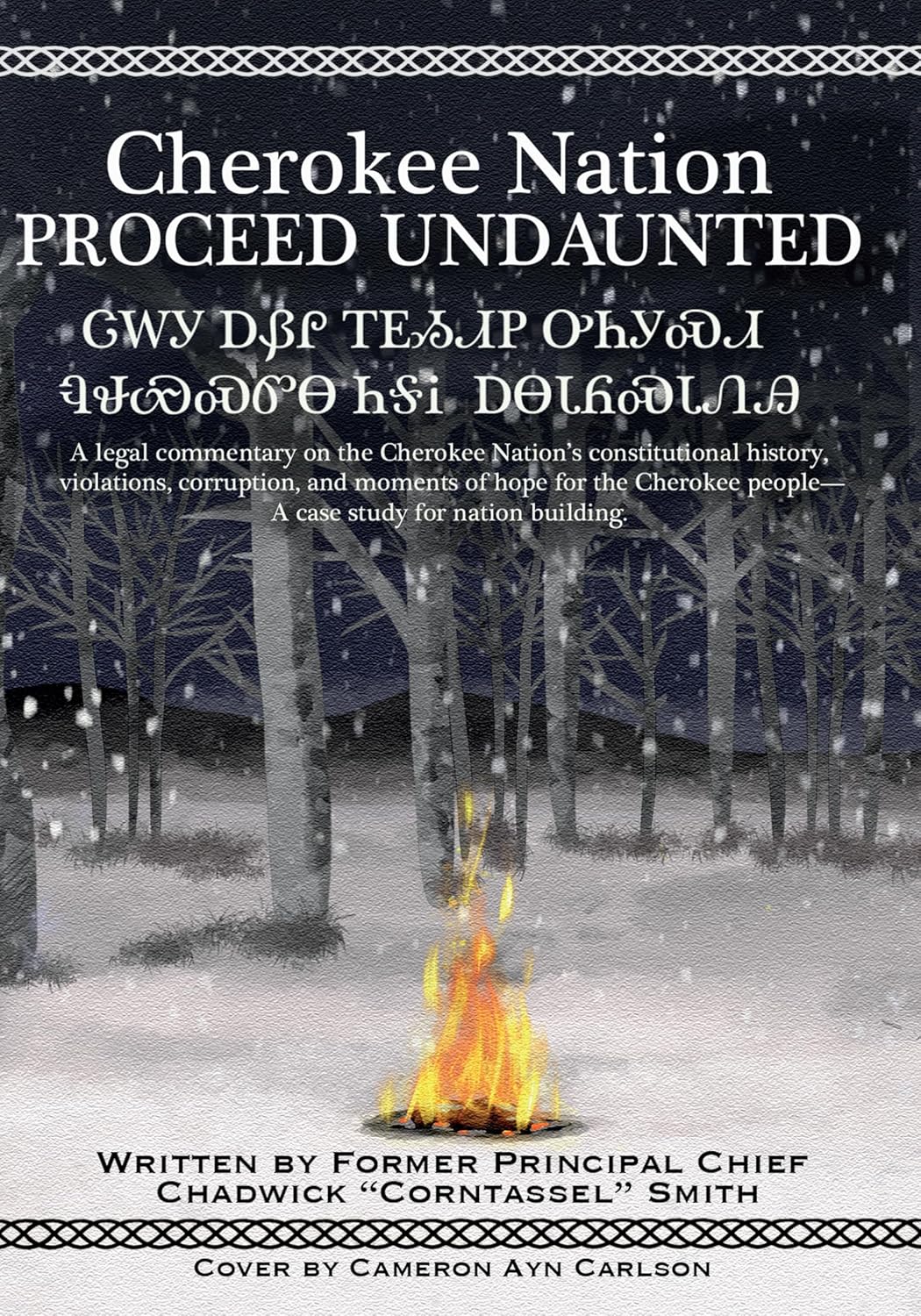
Elections are meant to reflect the will of the people, but what happens when money controls votes? In Cherokee Nation: Proceed Undaunted, Chadwick “Corntassel” Smith highlights how campaign financing has increasingly influenced Cherokee politics, raising concerns about whether financial power has overshadowed democratic principles.
The Rising Cost of Cherokee Elections
Smith notes that modern Cherokee elections are far more expensive than in past decades. Once, candidates relied on personal reputation, community engagement, and policy discussions to win elections. Today, high-dollar campaigns funded by powerful interests have changed the landscape.
Campaign expenditures now include:
- Media Advertising – Television, radio, direct mail, and social media ads influence voter perception.
- Political Consultants – Professional campaign strategists now play a major role.
- Large-Scale Events – Expensive rallies and community giveaways create visibility.
As election costs rise, candidates with financial backing from businesses, political allies, and influential families gain a major advantage. This has led to concerns that money—not policies or leadership ability—determines who holds office. When incumbents raise fundings on a “pay-to play” basis exchanges jobs and contracts for financial contributions, the election process is corrupted.
Who Funds Cherokee Campaigns?
Smith details several sources of campaign financing:
- Wealthy Individuals and Political Families
- Some families have dominated Cherokee politics for years using their wealth and main stream pollical party connections to fund candidates who align with their interests.
- This creates a political class that is difficult for Cherokees to challenge.
- Business Interests
- Executives of large tribal enterprises, including gaming and corporate ventures, have the resources to fund candidates directly and with in-kind resources who support their priorities.
- While economic growth is crucial, Smith warns that allowing business leaders to dictate political outcomes undermines self-governance.
- Outside Influences
- Some “pay to play” political donations come from non-Cherokee individuals or organizations with vested interests in tribal policies for jobs and contracts.
- Smith cautions that reliance on external funding risks compromising Cherokee sovereignty.
Has Money Undermined Free and Fair Elections?
Smith identifies several ways in which financial influence has weakened electoral integrity:
- Unequal Access to Campaign Resources
- Candidates without significant funding struggle to compete, leading to elections where only the wealthy or well-connected can realistically win.
- Incumbents often use the newspaper, magazine, public relation and video broadcast resources of the Nation to campaign.
- Policy Decisions Favoring Donors
- Elected officials may feel pressure to favor policies that benefit their campaign contributors rather than the Cherokee people.
- Voter Manipulation
- Well-funded campaigns can use advertising and misinformation to sway public opinion, sometimes distorting the truth.
Solutions for a More Democratic Election System
Smith suggests several reforms to limit financial influence in Cherokee elections:
Campaign Finance Transparency – Requiring candidates to disclose all sources of funding would allow voters to see who is influencing elections and prohibit shell companies from handling campaign funds
Contribution Limits – Capping individual donations would ensure that elections remain competitive and fair including prohibiting proxy donations.
Publicly Funded Debates – Ensuring that all candidates have an equal platform to present their policies would reduce the advantage of well-funded campaigns.
Stronger Ethical Standards – Creating independent oversight to monitor campaign financing would help prevent corruption.
Direct Mail Voting- Removing logistic barriers for voters and eliminating ballot harvesting.
The Fight for Fair Elections
Cherokee elections must remain about leadership and policy—not about who has the most money. As Smith warns, if financial power continues to dominate elections, the Cherokee Nation risks becoming a government that serves political donors rather than its citizens. The question remains: Will future Cherokee elections be determined by the people, or by those who control the money? The answer depends on whether the Nation takes steps to protect its democracy from financial influence.